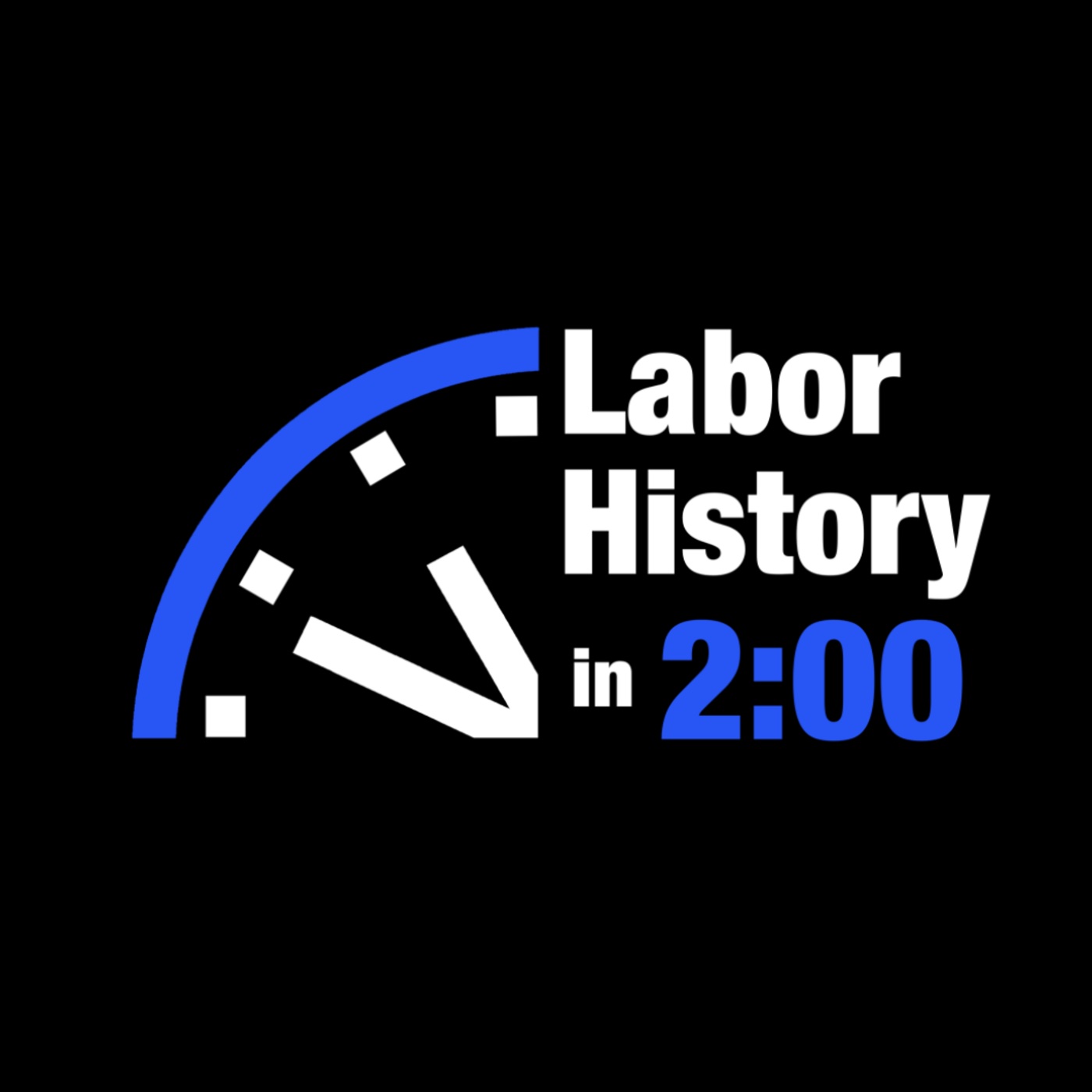Episodes

Wednesday Jan 01, 2025
January 1 - The Emancipation Proclamation
Wednesday Jan 01, 2025
Wednesday Jan 01, 2025
Today in labor history, January 1, 1963, is one of the most often misunderstood days in United States history. This was the day that Abraham Lincoln issued the “Emancipation Proclamation.” But did you know that Emancipation Proclamation did not actually free enslaved people in the U.S.?

Tuesday Dec 31, 2024
December 31 - The First to Enter Ellis Island
Tuesday Dec 31, 2024
Tuesday Dec 31, 2024
On this day in labor history the year was 1891. That was the day that an Irish teenager by the name of Annie Moore arrived on the shores of New York. She was travelling with her two younger brothers. They had taken a twelve-day sea voyage to be reunited with their parents, who were already in New York City.

Monday Dec 30, 2024
December 30 - Railway Clerks Organize
Monday Dec 30, 2024
Monday Dec 30, 2024
On this day in labor history the year was 1899. That was the day that a group of thirty-three railway clerks gathered in the back room of Behrens’ cigar shop in Sedalia, Missouri. They called themselves the Order of Railway Clerks in America. They affiliated with the American Federation of Labor.

Sunday Dec 29, 2024
December 29 - Pushing Back Against Plant Closures
Sunday Dec 29, 2024
Sunday Dec 29, 2024
On this day in labor history the year was 2006. That was the day that United Steelworker members ended a nearly three-month strike against the Goodyear Tire & Rubber Company. The strike involved nearly 15,000 workers from sixteen different plants across the United States and Canada.

Saturday Dec 28, 2024
December 28 - Sit-Down Solidarity
Saturday Dec 28, 2024
Saturday Dec 28, 2024
On this day in labor history the year was 1936. That was the day that at 2pm in the afternoon, 200 workers at the Fisher Body Ohio Company on the East side of Cleveland sat down on the job. Fisher was located in Cleveland’s Collinwoodneighborhood.

Friday Dec 27, 2024
December 27 - FDR Takes Over the Rails
Friday Dec 27, 2024
Friday Dec 27, 2024
On this day in labor history the year was 1943. That was the day that President Franklin Delano Roosevelt seized control of the nation’s railroads to avert a strike. The nation was in the midst of World War II.

Thursday Dec 26, 2024
December 26 - A Rude Awakening
Thursday Dec 26, 2024
Thursday Dec 26, 2024
On this day in labor history the year was 1996. That was the day that working people of South Korea awoke to some alarming news. That morning the country’s new ruling party had passed a new set of labor laws. The new policies had been implemented at an unscheduled morning meeting.

Wednesday Dec 25, 2024
December 25 - And So This is Christmas?
Wednesday Dec 25, 2024
Wednesday Dec 25, 2024
On this day in labor history the year was 2001. That was the year that the spirit of Christmas must have seemed very far away from some of the workers who harvested Christmas Trees in the United States. Many of these workers come from Mexico and Central American countries. They come for the harvest as guest workers.

Tuesday Dec 24, 2024
December 24 - A Very Tragic Christmas
Tuesday Dec 24, 2024
Tuesday Dec 24, 2024
On this day in labor history the year was 1913. That tragic Christmas Eve, came to be known as the Italian Hall Disaster in Calumet, Michigan. A Christmas party was being held for children of striking copper miners.

Monday Dec 23, 2024
December 23 - The Right to Boycott
Monday Dec 23, 2024
Monday Dec 23, 2024
On this day in labor history the year was 1908. That was the day that three leaders of the American Federation of Labor, Samuel Gompers, John Mitchell, and Frank Morrison, were sentenced to jail terms for calling for a Boycott against Bucks Stove & Range.

